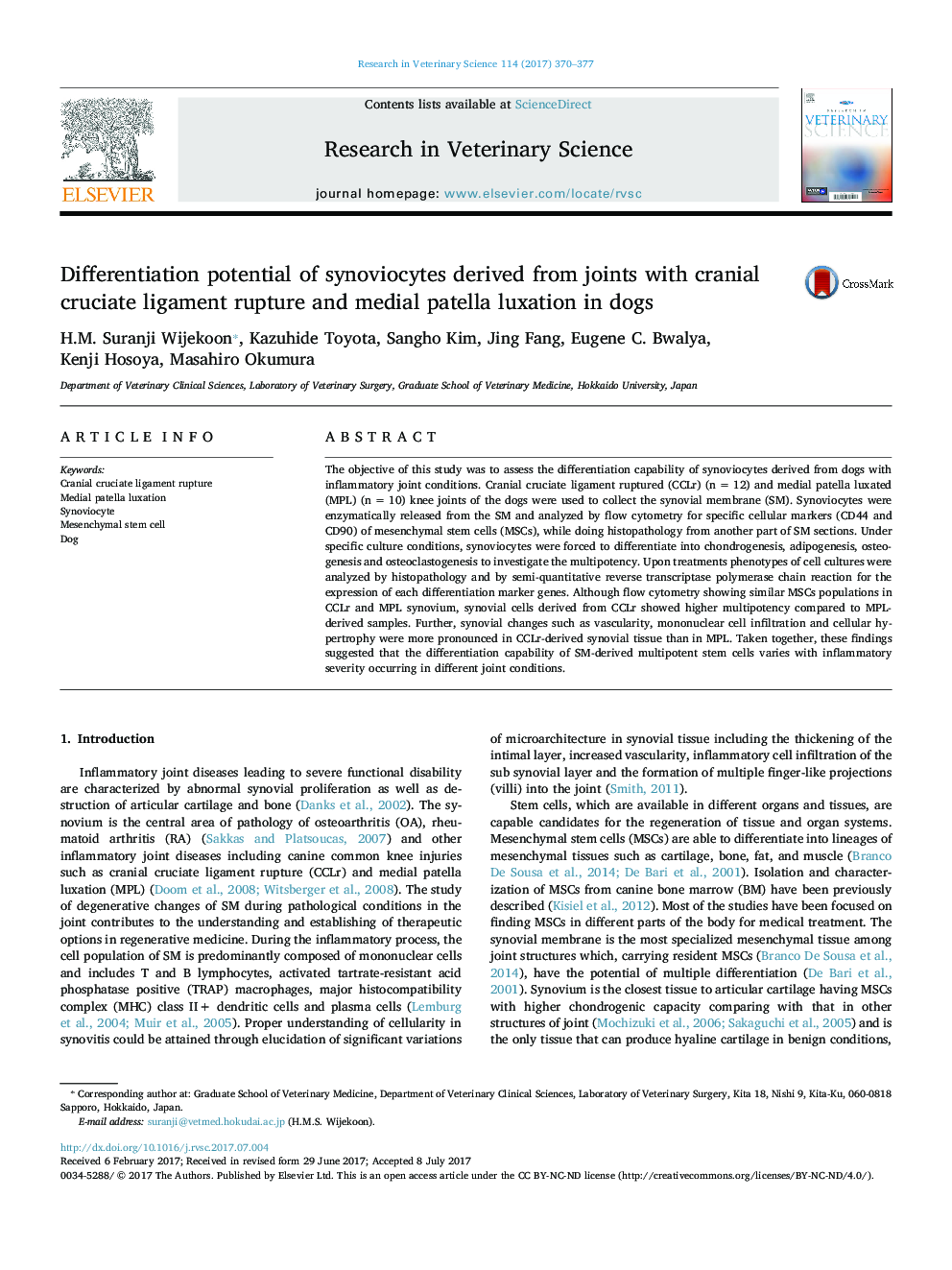| Article ID | Journal | Published Year | Pages | File Type |
|---|---|---|---|---|
| 5543931 | Research in Veterinary Science | 2017 | 8 Pages |
Abstract
The objective of this study was to assess the differentiation capability of synoviocytes derived from dogs with inflammatory joint conditions. Cranial cruciate ligament ruptured (CCLr) (n = 12) and medial patella luxated (MPL) (n = 10) knee joints of the dogs were used to collect the synovial membrane (SM). Synoviocytes were enzymatically released from the SM and analyzed by flow cytometry for specific cellular markers (CD44 and CD90) of mesenchymal stem cells (MSCs), while doing histopathology from another part of SM sections. Under specific culture conditions, synoviocytes were forced to differentiate into chondrogenesis, adipogenesis, osteogenesis and osteoclastogenesis to investigate the multipotency. Upon treatments phenotypes of cell cultures were analyzed by histopathology and by semi-quantitative reverse transcriptase polymerase chain reaction for the expression of each differentiation marker genes. Although flow cytometry showing similar MSCs populations in CCLr and MPL synovium, synovial cells derived from CCLr showed higher multipotency compared to MPL-derived samples. Further, synovial changes such as vascularity, mononuclear cell infiltration and cellular hypertrophy were more pronounced in CCLr-derived synovial tissue than in MPL. Taken together, these findings suggested that the differentiation capability of SM-derived multipotent stem cells varies with inflammatory severity occurring in different joint conditions.
Related Topics
Life Sciences
Agricultural and Biological Sciences
Animal Science and Zoology
Authors
H.M. Suranji Wijekoon, Kazuhide Toyota, Sangho Kim, Jing Fang, Eugene C. Bwalya, Kenji Hosoya, Masahiro Okumura,
